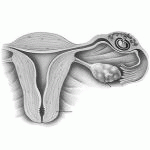Gynaecology
|
23 october 2014 01:50:33 |
| Effects of induction of labour versus expectant management in women with impending post-term pregnancies: the 41 week - 42 week dilemma (BMC Pregnancy and Childbirth) |
|
Tweet Background:
Post-term pregnancy, a pregnancy exceeding 294 days or 42 completed weeks, is associated with increased perinatal morbidity and mortality and is considered a high-risk condition which requires specialist surveillance and induction of labour. However, there is uncertainty on the policy concerning the timing of induction for post-term pregnancy or impending post-term pregnancy, leading to practice variation between caregivers. Previous studies on induction at or beyond 41 weeks versus expectant management showed different results on perinatal outcome though conclusions in meta-analyses show a preference for induction at 41 weeks. However, interpretation of the results is hampered by the limited sample size of most trials and the heterogeneity in design. Most control groups had a policy of awaiting spontaneous onset of labour that went far beyond 42 weeks, which does not reflect usual care in The Netherlands where induction of labour at 42 weeks is the regular policy. Thus leaving the question unanswered if induction at 41 weeks results in better perinatal outcomes than expectant management until 42 weeks.
Methods:
In this study we compare a policy of labour induction at 41 + 0/+1 weeks with a policy of expectant management until 42 weeks in obstetrical low risk women without contra-indications for expectant management until 42 weeks and a singleton pregnancy in cephalic position. We will perform a multicenter randomised controlled clinical trial. Our primary outcome will be a composite outcome of perinatal mortality and neonatal morbidity. Our secondary outcome will be a composite of adverse maternal outcome including mode of delivery (operative vaginal delivery and Caesarean section), need for analgesia and postpartum haemorrhage (>=1000 ml). Maternal preferences, satisfaction, wellbeing, pain and anxiety will be assessed alongside the trial.DiscussionThis study will provide evidence for the management of pregnant women reaching a gestational age of 41 weeks.Trial registration: Dutch Trial Register (Nederlands Trial Register): NTR3431. Registered: 14 May 2012. |
| 99 viewsCategory: Gynaecology |
 `Ultrasound is an invaluable third eye, but it can`t see everything`: a qualitative study with obstetricians in Australia (BMC Pregnancy and Childbirth) `Ultrasound is an invaluable third eye, but it can`t see everything`: a qualitative study with obstetricians in Australia (BMC Pregnancy and Childbirth)Antenatal mindfulness intervention to reduce depression, anxiety and stress: a pilot randomised controlled trial of the MindBabyBody program in an Australian tertiary maternity hospital (BMC Pregnancy and Childbirth) 
|
| blog comments powered by Disqus |
MyJournals.org
The latest issues of all your favorite science journals on one page
The latest issues of all your favorite science journals on one page



